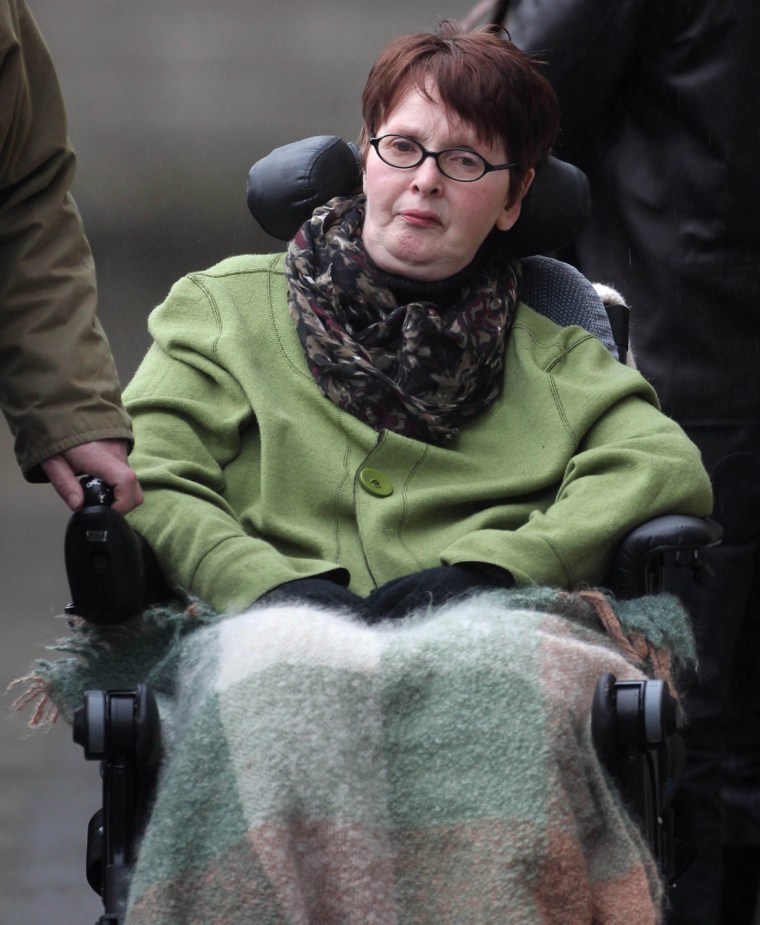A paralyzed Irish woman who says she is living in severe agony cannot commit suicide with the help of her partner, Ireland's Supreme Court ruled Monday.
The right to life in the country's constitution "does not import a right to die," the seven-judge court ruled.
Marie Fleming, 59, suffers from multiple sclerosis and is paralyzed from the neck down. She testified that she suffers nearly unbearable pain and that she fears choking because she cannot swallow.
While suicide is no longer a crime in Ireland, Chief Justice Susan Denham ruled there is no constitutional right to it. The court noted that law makers could pass a law that would allow citizens to take their own lives, but thus far have not done so.
Lawyers for Fleming, a former lecturer at the University College Dublin, argued that because suicide is not a crime in Ireland, a disabled person should be able to receive help to kill themselves. Fleming's attorneys also argued their client's rights under the European Convention on Human Rights were being violated.
But in her ruling Denham said it is primarily for the states to administer their own laws on assisted suicide.
Fleming is suffering from a chest infection and could not be in the courtroom for the ruling. But her partner, Tom Curran, was present along with the couple's three adult children. As the Denham read the ruling, the family held hands and cried, the Associated Press reported.
Despite the ruling, Curran told reporters outside the courthouse that he would help Fleming end her life if she chose to do so.
"It’s very difficult to understand how a person with a disability can be deprived of something that’s legally available to everybody else, every able-bodied person," Curran said, according to the Irish Times. "And for that not to be discriminatory under the constitution. That’s something we fail to understand."
Fleming's testified in December, and told the court that three years earlier she had considered killing herself when she still had movement in her arms. But Curran persuaded her not to and she refrained — a decision she said she now regrets.
Judges need to leave their benches and sit next to Fleming to hear her testimony since her voice is was so weak.
"When you have to be showered, toileted and fed, you start to feel like a nobody," she testified, according to the Associated Press. "I want to go peacefully, in my own home, with the people I love around me."
Curran would face a maximum prison sentence of 14 years if convicted of assisting suicide.
The Associated Press contributed to this report
